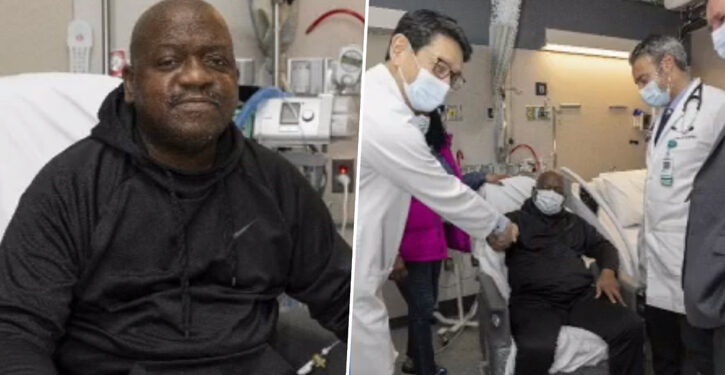The 62-year-old man who received the first-ever pig kidney transplant in the world has died, his family announced on Saturday.
Richard Slayman underwent the four-hour procedure in March at Massachusetts General Hospital and was discharged from the hospital two weeks later on April 2.
The hospital emphasized there was no indication Slayman’s sudden passing was due to the transplant.
“The Mass General transplant team is deeply saddened at the sudden passing of Mr. Rick Slayman. We have no indication that it was the result of his recent transplant,” Massachusetts General Hospital said in a statement.
Slayman a resident of Weymouth — 16 miles southeast of Boston — had been living with Type 2 diabetes and hypertension for many years, the hospital said at the time of his transplant. He was on dialysis for many years before receiving a kidney transplant from a human deceased donor in December 2018 at Massachusetts General Hospital.
However, the kidney began to fail about five years later and Slayman was forced to resume dialysis in May 2023, which the hospital said affected his quality of life.
“Mr. Slayman will forever be seen as a beacon of hope to countless transplant patients worldwide and we are deeply grateful for his trust and willingness to advance the field of xenotransplantation. We offer our heartfelt condolences to Mr. Slayman’s family and loved ones as they remember an extraordinary person whose generosity and kindness touched all who knew him,” the hospital’s statement read.
The kidney was provided by eGenesis, a pharmaceutical company based in Cambridge, from a pig donor genetically-edited using CRISPR-Cas9 technology. The harmful pig genes were removed and certain human genes were added to improve its compatibility with humans, according to the hospital.
In a statement, Slayman’s family thanked the doctors and his care team at Mass General Hospital.
“Our family is deeply saddened about the sudden passing of our beloved Rick but take great comfort knowing he inspired so many. Millions of people worldwide have come to know Rick’s story. We felt – and still feel – comforted by the optimism he provided patients desperately waiting for a transplant.”










Discussion about this post